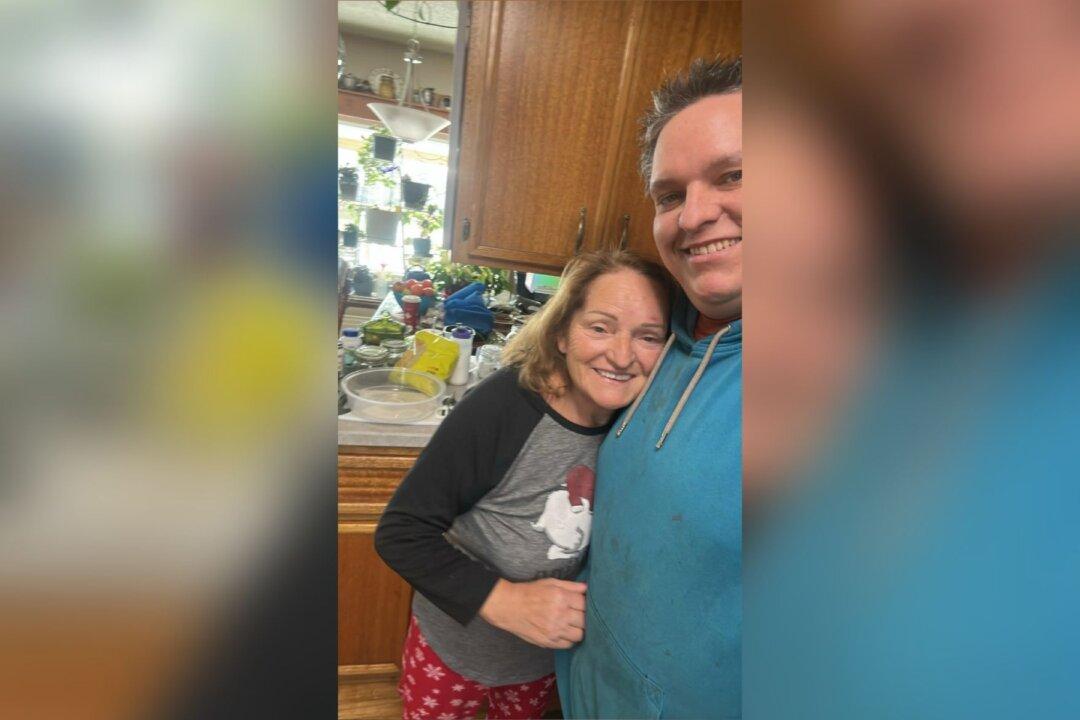FORT QU'APPELLE, Sask.—Cheering supporters greeted Prime Minister Justin Trudeau as he arrived in Saskatchewan for what First Nations leaders described as a historic meeting that heralds a sign of change.
Trudeau held a private meeting on the evening of Tuesday, April 26, with the File Hills Qu‘Appelle Tribal Council in Fort Qu’Appelle, about 75 kilometres northeast of Regina.
Trudeau said he’s working on helping the relationship between First Nations people and the federal government.
“I don’t want to pretend that any of us have the answers to the challenges facing indigenous peoples in Canada, but what I will tell you is that as a country, we can build those answers,” Trudeau said after the meeting.
“We cannot turn our collective back on the problems. It’s not enough to be outraged by the headlines, the stories of heartbreak and hopelessness that come out of communities like La Loche, Attawapiskat, and Natuashish, and so many more.”
The northern Saskatchewan village of La Loche was rocked Jan. 22 when a teenage boy allegedly shot and killed two brothers before going to the high school, where a teacher and a teacher’s aide were killed and seven others wounded.
Trudeau visited the community a week after the shooting and promised that the federal government would be there for the people of La Loche for years to come.
Natuashish, an Innu community in Labrador, has been the scene of a massive search effort for a missing teenager while a state of emergency was declared on Ontario’s Attawapiskat First Nation because of a string of suicide attempts among young people.
The prime minister didn’t make any new announcements in Fort Qu'Appelle on Tuesday, but noted the federal budget’s announcement of investments in education, housing, health care facilities, and clean drinking water.
He said the government is taking significant steps to renew the relationship in an open and respectful way and to take concrete actions.
File Hills Qu'Appelle Tribal Council chairman Edmund Bellegarde said he believes Trudeau.
“This is the first sign that we have a true commitment, that we have a meaningful conversation, that we have a meaningful relationship,” said Bellegarde.
He said no other prime minister has sat down for a conversation with the tribal council, and the very action of Trudeau listening to the tribal concerns is a change 140 years in the works.
“This is historic. This is reshaping the relationship. This is adding respect,” Bellegarde said. “This is recognizing the indigenous peoples of this country have a role to play in the constitutional framework, but also in the public policy that needs to change, where it impacts our people.”
Pipeline criticism
Meanwhile, Trudeau pushed back at the federal Conservatives who criticized his position on pipelines ahead of his Wednesday meeting with Premier Brad Wall—one of his sharpest critics on the file.
Interim Conservative Leader Rona Ambrose was also in Saskatchewan, where low energy prices are battering the province’s economy and have Wall’s government in the red.
Ambrose accused Trudeau of waffling on support for pipelines since last year’s federal election. She says the pipeline approval process is vague and creates too much uncertainty in the oil industry, which translates into more job losses.
Trudeau repeated his often-used line that the Conservatives had years to build a pipeline while in government and couldn’t get it done.
He said getting resources to market is a key responsibility of the federal government and the best way to get a pipeline built is to co-operate with communities and First Nations along the route and to respect their concerns.
“I have been crystal clear for years now on pipelines. One of the fundamental responsibilities of any Canadian prime minister—and this goes back centuries, from grain on railroads to fish and fur—is to get Canadian resources to international markets,” Trudeau said Wednesday.
“But what the Conservatives still refuse to understand is that in order to get our resources to market in the 21st century, we have to be responsible around the environment, we have to respect concerns that communities have, and we have to build partnerships with indigenous peoples.”
Alberta has also been seeking more support from Ottawa. Premier Rachel Notley met with Trudeau privately on Sunday and then addressed about half the federal cabinet at a retreat in Kananaskis, Alta.
Notley advocated for more pipeline support and for Ottawa to enrich employment insurance. She has expressed concern that workers in Edmonton have been excluded in the recent changes to EI coverage.
From The Canadian Press





